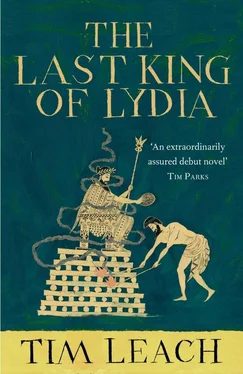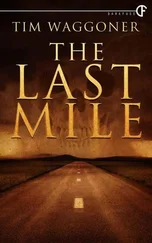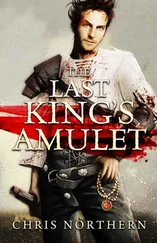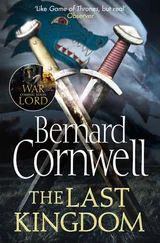Tim Leach - The Last King of Lydia
Здесь есть возможность читать онлайн «Tim Leach - The Last King of Lydia» весь текст электронной книги совершенно бесплатно (целиком полную версию без сокращений). В некоторых случаях можно слушать аудио, скачать через торрент в формате fb2 и присутствует краткое содержание. Год выпуска: 2013, ISBN: 2013, Издательство: Atlantic Books Ltd, Жанр: Исторические приключения, на английском языке. Описание произведения, (предисловие) а так же отзывы посетителей доступны на портале библиотеки ЛибКат.
- Название:The Last King of Lydia
- Автор:
- Издательство:Atlantic Books Ltd
- Жанр:
- Год:2013
- ISBN:9780857899200
- Рейтинг книги:5 / 5. Голосов: 1
-
Избранное:Добавить в избранное
- Отзывы:
-
Ваша оценка:
- 100
- 1
- 2
- 3
- 4
- 5
The Last King of Lydia: краткое содержание, описание и аннотация
Предлагаем к чтению аннотацию, описание, краткое содержание или предисловие (зависит от того, что написал сам автор книги «The Last King of Lydia»). Если вы не нашли необходимую информацию о книге — напишите в комментариях, мы постараемся отыскать её.
The Last King of Lydia — читать онлайн бесплатно полную книгу (весь текст) целиком
Ниже представлен текст книги, разбитый по страницам. Система сохранения места последней прочитанной страницы, позволяет с удобством читать онлайн бесплатно книгу «The Last King of Lydia», без необходимости каждый раз заново искать на чём Вы остановились. Поставьте закладку, и сможете в любой момент перейти на страницу, на которой закончили чтение.
Интервал:
Закладка:
‘Isn’t there something else you could do, Father?’
‘With these riches, what is there to do but go to war?’ Alyattes asked. ‘You can barter bread for eggs or a horse for sheep in the marketplace, but with this you can buy a new world. That is what my coins are for.’
Alyattes reached down and took the coin back from his son, and Croesus found his fingers reaching for it even as it was taken from him. His father held the metal oval between finger and thumb. ‘Listen to me, and try to understand. I love this,’ he said, gesturing to the coin, ‘more than I love you. And I love you very much. But this. .’ He shrugged. ‘It is a remarkable thing. A remarkable thing that I have made. It will change the world.’
Alyattes stood and turned to leave, and as Croesus watched his father walk away he felt for the very first time the sensation that no child can forget — the sense that one’s father or mother is wrong. There was something else to be done with this invention, he was sure of it. It could create something greater than a war.
‘Can I keep it?’ Croesus said, just as his father was about to leave the room.
Alyattes turned back, and smiled approvingly. He threw the coin to the boy, and Croesus took it from the air with a hasty grasp of his hand.
2
War is an infection that breeds in the minds of kings. Once caught, it may come on slowly or burn hot like a one-day fever. It will not die until it is treated with blood.
For Croesus, the first infection came from the sight of a map.
In the early years of his rule, he had fought several small wars of conquest, the inevitable actions of a powerful king surrounded by weak rulers. A dozen cities fell beneath the banner of bull and lion, but the wars meant nothing to him, and they did not compare with the grand campaigns of his father’s life. Occasionally, he would glance without interest at a crude map of his empire, but he never felt any desire for anything more precise. His world was Sardis and his family. What more did he need than that?
Yet, after Atys’s death, he asked his cartographers to draw up two maps, accurate in every measure, flawless in detail. For a year, his people rode to every corner of the kingdom, counting the beats of their horses’ hooves to measure distance. They waited for clear days and climbed mountains to better view the land, producing sketches from the heights of icy peaks. They corresponded with the mapmakers and librarians of distant cities, waiting months for the arrival of crumbling, faintly inked copies of maps they had thought long lost.
At last, the work was finished. In one of the king’s throne rooms they first unrolled a handsome scroll of the Lydian empire, deeply inked with the conquered cities, the dividing rivers, the great Aegean sea that bordered the empire to the west.
Croesus looked at the empire he had inherited. He let his hand brush over the soft skin of the scroll, thinking of the thousands of lives that lay beneath each stroke of his finger, all of them paying their fealty to him. From the sea to the west to the river Halys in the east, all these lands belonged to him. He stared at it until he had the image of his empire firmly fixed in his mind. Then, he asked the cartographers to uncover the other map.
Hesitantly, they unrolled the second scroll. This one showed much more than Lydia. It did not venture across the Aegean to the Hellenic city states, but it stretched far to the east and south. He looked on Egypt, Media, Assyria, the nomad plains of the Massagetae, the great city of Babylon. The cartographers, bound by the king’s orders, had not played tricks with the scale as they might otherwise have. There was no hiding the vast expanse of land that lay to the east, the hundreds of thousands of men and women who knew and cared nothing for the king of Lydia.
Croesus noticed that one of the mapmakers was shivering nervously. The king smiled at him. ‘Don’t fear me. I cannot rule the whole world, can I?’ Croesus raised his hand, intending to click his fingers and dismiss the mapmaker and the troubling vision he had summoned. He hesitated, his finger and thumb pressed against each other, but not yet making a sound.
He looked over the map one more time. He began at the far edge of his kingdom, the western city of Phocaea. His eyes roved south to Smyrna, the port where ships from half a hundred nations arrived with jewels, silks and spices. He travelled north, reached the banks of the Hermus river and followed it until he reached Sardis. He paused briefly at his capital, then struck east, heading for the Halys river at the border of his lands.
From there, he imagined his eyes as a marching army. He went beyond the Halys, taking Cappadocia and the great city of Trapezus. He led his conquering gaze south, down the Euphrates to Babylon. He lingered there for a time, imagining what it would be to rule the greatest city in the world, a city unmatched in beauty and spectacle by any other. Then he went east again, pausing at another great river. It was the Tigris, and beyond it lay the land of the Medes.
In his father’s time, the Medes and the Lydians had been enemies. After many a bloody and inconclusive war, Croesus’s sister had been married to Astyages, king of the Medes, and the two peoples had lived in peace for decades. In his mind, Croesus broke the thirty-year peace in a matter of moments, his eyes passing over the Tigris, into the land of the Medes, and seizing his brother-in-law’s kingdom.
But his gaze was still hungry, and continued its march east until finally his eye chanced on the river Medus in the heart of Persia, and came to rest there. For some reason, it seemed like the right place to stop.
Gazing at the maps, he understood why war had so captivated his father. He was grateful for the kingdom of the Medes on his borders, the peace treaty with Astyages that he could never break, for he did not trust this ache that he had, this longing for the East. Without his son, there was such an absence in his life. It would be so easy to fill it with a war.
Croesus tried to leave his thoughts of conquest buried deep in the heavy, yellowed curls of the map. He left the throne room for the one place where he would be able to forget them.
As he descended through the palace, Croesus shed his followers like so many layers of unwanted clothing. First, he disposed of the noblemen who begged favours from him, dispatching them one by one until there were none left to bother him. The band of slaves that trailed after him, half of them in service to him, the other half monitoring his movements on behalf of his nobles, was dismissed with a few brief commands. He kept his guards with him for most of the journey deep into the palace, but dismissed them too before he descended the last stairwell.
Alone, he reached a door in a dark and forgotten corridor of the palace. He took a gold key on a silver chain from within the folds of his clothes. He unlocked the door and went inside.
Croesus was in darkness. By touch and memory he made his way to a table at the end of the room, taking one of dozens of oil-soaked torches that had been left piled there. He felt his way to the far end of the table, his hands fumbling for the flints he knew were there, and he struck sparks until the torch caught.
The room flickered into view. The table and floor were furred with dust, and no slave had cleaned here for years. The floor was covered with many trails of footprints, but they were all exactly the same shape and size. They all belonged to him.
He paced around the abandoned room, filled with broken shards of pottery and crumbling chunks of stone. He reached a rotting wooden chest which, when he was a child, had once served as a throne. He poked at one corner with the toe of his boot, and watched the wood crumble into splinters, accompanied by an eruption of insects and tiny grey spiders.
Читать дальшеИнтервал:
Закладка:
Похожие книги на «The Last King of Lydia»
Представляем Вашему вниманию похожие книги на «The Last King of Lydia» списком для выбора. Мы отобрали схожую по названию и смыслу литературу в надежде предоставить читателям больше вариантов отыскать новые, интересные, ещё непрочитанные произведения.
Обсуждение, отзывы о книге «The Last King of Lydia» и просто собственные мнения читателей. Оставьте ваши комментарии, напишите, что Вы думаете о произведении, его смысле или главных героях. Укажите что конкретно понравилось, а что нет, и почему Вы так считаете.












